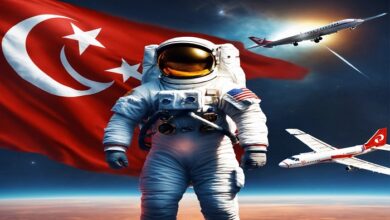Biocentrism Debunked: Why Life and Consciousness Are Not the Keys to the Universe

Biocentrism is a philosophical theory that claims that life and consciousness are the fundamental aspects of reality, and that the physical universe is a product of our perception. According to biocentrism, biology is the primary science, and physics is secondary. This theory was developed by Dr. Robert Lanza, a renowned scientist and author, who published his book “Biocentrism: How Life and Consciousness are the Keys to Understanding the True Nature of the Universe” in 2007.
Biocentrism has attracted a lot of attention and controversy, as it challenges the conventional scientific and philosophical views of the universe. It also offers a new perspective on some of the mysteries of quantum mechanics, such as the double-slit experiment and the Schrödinger’s cat paradox. However, biocentrism has also faced a lot of criticism and skepticism, as it lacks empirical evidence, contradicts established laws of physics, and relies on questionable assumptions and arguments. In this article, we will explore some of the reasons why biocentrism is debunked, and why life and consciousness are not the keys to the universe.
The Quantum Enigma
One of the main pillars of biocentrism is its interpretation of quantum mechanics, the branch of physics that deals with subatomic particles and phenomena. Biocentrism claims that quantum experiments show that reality is dependent on observation by a conscious being, and that matter does not exist until it is measured. This claim is based on the famous double-slit experiment, which shows that electrons behave like waves or particles depending on whether they are observed or not.
However, this claim is not supported by the scientific consensus, as there are many other possible explanations for the quantum enigma, such as the Copenhagen interpretation, the many-worlds interpretation, or the decoherence theory. These explanations do not require consciousness or observation to account for the quantum behavior, but rather suggest that reality is probabilistic, deterministic, or emergent. Moreover, biocentrism does not explain how consciousness affects reality at the quantum level, or what constitutes an observer or a measurement.
The Anthropic Principle
Another argument that biocentrism uses to support its theory is the anthropic principle, which states that the fundamental constants and laws of nature are finely tuned to allow for the existence of life in the universe. Biocentrism suggests that this fine-tuning implies a conscious design or purpose behind the universe, and that life and consciousness are essential for its existence.
However, this argument is also flawed, as it commits a logical fallacy known as the inverse gambler’s fallacy. This fallacy occurs when one infers that an improbable outcome must have a special cause or explanation, without considering other possible scenarios or probabilities. For example, if one wins a lottery with very low odds, one might think that there was some divine intervention or luck involved, without realizing that there were millions of other possible outcomes that did not occur.
Similarly, biocentrism assumes that because our universe is hospitable to life, it must have been created or influenced by life or consciousness. However, this ignores the possibility that there are many other universes with different constants and laws that are not hospitable to life, or that our universe is just one of many possible outcomes of a random or natural process. In fact, some cosmological theories suggest that there are multiple or infinite universes with varying properties, known as the multiverse theory. This theory would explain why our universe appears fine-tuned for life without invoking consciousness or design.
The Biological Bias
A third criticism of biocentrism is its biological bias. Biocentrism elevates life and consciousness as the sole determinants of reality, while ignoring or dismissing other forms of existence or intelligence. Biocentrism defines life as “a self-sustaining system capable of Darwinian evolution”, and consciousness as “the ability to experience or feel something”. However, these definitions are vague and arbitrary, and do not account for other possible types or degrees of life or consciousness.
For example, biocentrism does not consider whether artificial intelligence (AI) could have consciousness or influence reality. AI is a form of intelligence that is not biological but computational, and could potentially surpass human intelligence in some domains. AI could also have subjective experiences or feelings, depending on how it is programmed or designed. Moreover, biocentrism does not address whether alien life could exist in other planets or dimensions, and how it would affect reality. Alien life could have different forms or features than terrestrial life, and could have different levels or kinds of consciousness.
By focusing only on biological life and human consciousness, biocentrism neglects the possibility of other forms of existence or intelligence that could also play a role in reality. Biocentrism also assumes that life and consciousness are unique and special, while ignoring the fact that they are natural phenomena that can be explained by physical and chemical processes.
Conclusion
In conclusion, biocentrism is a philosophical theory that claims that life and consciousness are the keys to the universe, and that the physical universe is a product of our perception. However, biocentrism is debunked by several reasons, such as:
- It misinterprets quantum mechanics and ignores other possible explanations for the quantum enigma.
- It commits a logical fallacy and overlooks other possible scenarios or probabilities for the fine-tuning of the universe.
- It has a biological bias and disregards other forms of existence or intelligence.
Therefore, biocentrism is not a valid or reliable theory, and does not provide a satisfactory answer to the nature of reality. Life and consciousness are not the keys to the universe, but rather parts of it. The universe is not a mental construct, but a physical entity that exists independently of our perception.



